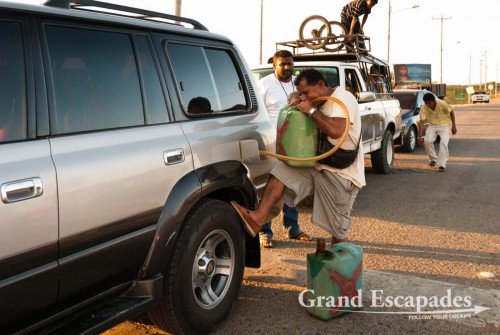
The small town of Uribia, only an hour?s drive from the border town of Maicao, is teeming with smuggled goods. Gasoline is the prime merchandise, easily available at every street corner for 35 cent a liter, cheap, but still ten times the price of what it costs in Venezuela
La Guajira’s reputation as a place beyond civilization is easily understood when looking at its past and modern history. A place where centuries ago pirates attacked Spanish ships loaded with precious cargo and strong-willed Wayuu never surrendered. Modern days see different kind of adventurers: large scale smuggling is so widespread, extensive and above all, so obvious that it is almost beyond belief.
The desert-like peninsula on Columbia’s northernmost point is still the home the Wayuu, “Indeginos” who have inhabited this extremely hot and barren land for centuries, resisted all intruders and on their part raided towns like Riohacha as late as the 1930s. Things have calmed, but the area still exhibits an aura of lawlessness that – as least for us – seems unparalleled.
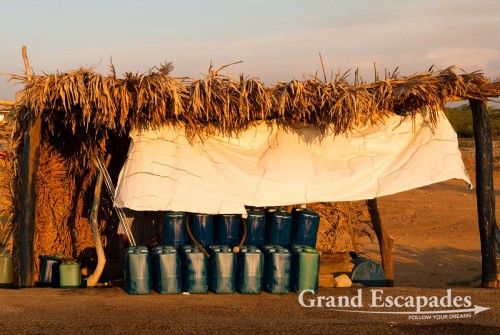
The small town of Uribia, only an hour’s drive from the border town of Maicao, is teeming with smuggled goods. Gasoline is the prime merchandise, easily available at every street corner for 35 cent a liter, cheap, but still ten times the price of what it costs in Venezuela
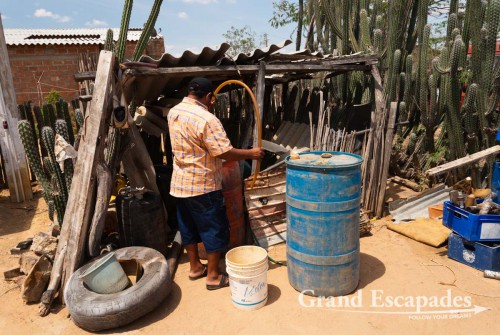
The small town of Uribia, only an hour’s drive from the border town of Maicao, is teeming with smuggled goods. Gasoline is the prime merchandise, easily available at every street corner for 35 cent a liter, cheap, but still ten times the price of what it costs in Venezuela
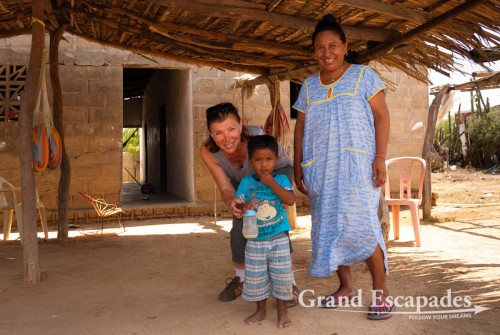
The small town of Uribia, only an hour’s drive from the border town of Maicao, is teeming with smuggled goods. Gasoline is the prime merchandise, easily available at every street corner for 35 cent a liter, cheap, but still ten times the price of what it costs in Venezuela
The small town of Uribia, only an hour’s drive from the border town of Maicao, is teeming with smuggled goods. Gasoline is the prime merchandise, easily available at every street corner for 35 cent a liter, cheap, but still ten times the price of what it costs in Venezuela. From 25 liter canisters the gasoline is transferred in empty tanks by using short plastic tubes. The vendors sucks on one end and the gas starts flowing into big land cruisers, all stolen in Venezuela and taken across the border.
The Columbian government even developed a scheme to identify these cars by issuing special license plates, half green, half white. This way at least they pay taxes in Columbia. Before this rule was implemented, the stolen cars would just be driven around with their Venezuelan plates, and thus avoid paying taxes.
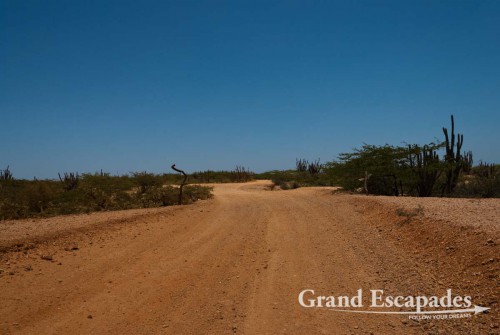
Who has not been to one of the many “Ends of the world”? Ushuaia claims that title as many other places, but here on the tip of La Guajira, at the northernmost point of South America, it feels absolutely real.
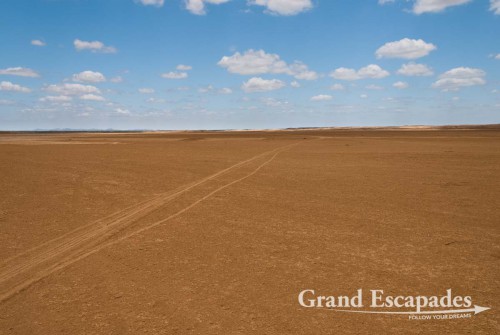
Who has not been to one of the many “Ends of the world”? Ushuaia claims that title as many other places, but here on the tip of La Guajira, at the northernmost point of South America, it feels absolutely real.
On our way from Punta Gallinas to Cabo de la Vela, we stopped in Puerto Nuevo to make a phone call from a store. A wooden shack, like the rest of the few “constructions”, no people to be seen, well, but who would walk around in this heat? Minutes later we learned the purpose this godforsaken place: behind the trees a huge cargo ship was lurking, full of trucks with contraband from Aruba, Panama and god knows where.
Another fine example of how “inventive” locals are is how they evade paying toll on the road connecting Riohacho and Uribia, the last bit of paved road, before the wilderness of La Guajira begins. Regularly they just by-pass the toll both, pay a local farmer 2.000 COP instead of the regular 6.900 COP to pass his house and join the road later on.
So why come here? Well, you must read on!

No comments yet.